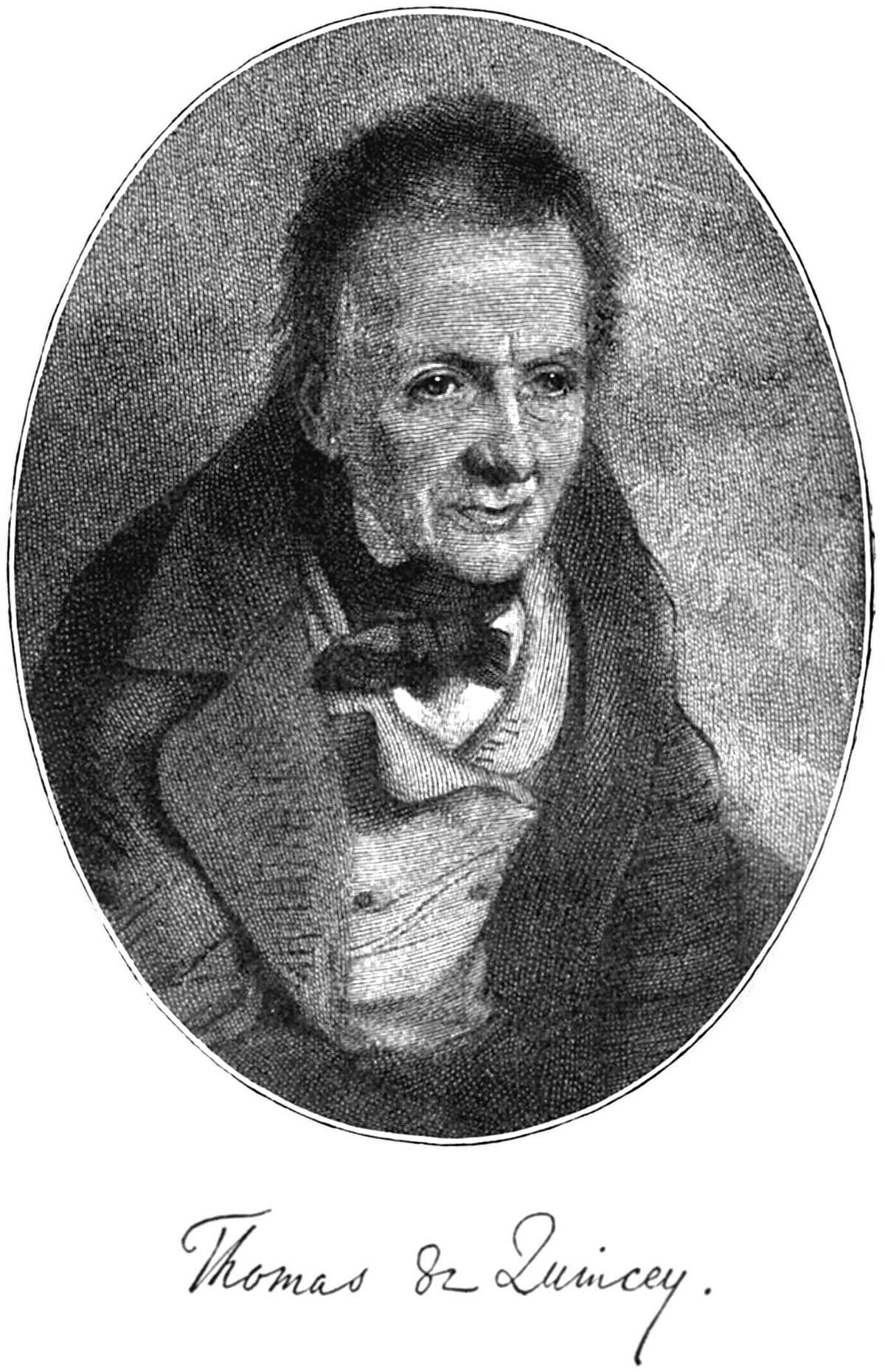“Non si fa mai consapevolmente una cosa per l'ultima volta senza una certa tristezza nel cuore.”
Origine: Da Confessioni di un oppiomane.
Thomas Penson de Quincey è stato uno scrittore, giornalista, saggista e traduttore inglese, fra i più originali e significativi del suo tempo. Wikipedia

“Non si fa mai consapevolmente una cosa per l'ultima volta senza una certa tristezza nel cuore.”
Origine: Da Confessioni di un oppiomane.
Origine: Il postale inglese, p. 42
“Thou hast the keys of Paradise, oh just, subtle, and mighty opium!”
Pt. II.
Confessions of an English Opium-Eater (1822-1856)
Pt. I.
Confessions of an English Opium-Eater (1822-1856)
"A Second Paper on Murder Considered as One of the Fine Arts" (1839). Source: Thomas de Quincy. On Murder (Oxford: Oxford UP, 2006), 84
“The burden of the incommunicable.”
Pt. I.
Confessions of an English Opium-Eater (1822-1856)
“Everlasting farewells! and again, and yet again reverberated—everlasting farewells!”
Pt. III.
Confessions of an English Opium-Eater (1822-1856)
“A promise is binding in the inverse ratio of the numbers to whom it is made.”
Appendix.
Confessions of an English Opium-Eater (1822-1856)
Pt. I.
Confessions of an English Opium-Eater (1822-1856)
Pt. I.
Confessions of an English Opium-Eater (1822-1856)
Pt. II, Recalling the day in 1804 when he first took opium.
Confessions of an English Opium-Eater (1822-1856)
Confessions of an English Opium-Eater (1822-1856)
Pt. I.
Confessions of an English Opium-Eater (1822-1856)
“In many walks of life, a conscience is a more expensive encumbrance than a wife or a carriage.”
Confessions of an English Opium-Eater (1822-1856)